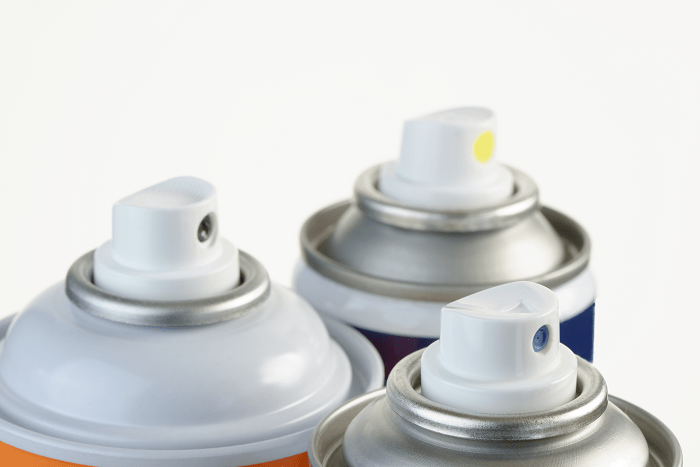Most equipment that is degreased is powered off before the degreasing process begins, but there are also situations in which equipment must be degreased while it is still energized; that is, while the circuitry in the equipment still carries an electrical charge. Cleaning energized equipment involves a higher level of danger than cleaning non-energized equipment. That is why it is important to select an aerosol contact cleaner that has the following crucial specs.
Dielectric Formulation
Dielectric fluids “prevent or rapidly quench electric discharges” (Wikipedia). This makes them ideal for cleaning contacts in energized equipment. High-voltage arc flashes can cause serious injury and even death. Using a dielectric cleaner helps protect both you and your equipment.
Non-Flammable Formulation
An aerosol contact cleaner that is used to clean energized equipment should ideally have a non-flammable formulation, as this will prevent the cleaner from becoming an accellerant under all conditions. A non-flammable formulation also gives you more storage options for the cleaner.
Exceptionally High Flash Point
If it is impossible to find an aerosol contact cleaner that meets your cleaning needs and has a non-flammable formulation, choosing a product with a high flashpoint is the next best option. We can advise you on choosing an efficacious cleaner that has an exceptionally high flashpoint.
Non-Residue Formulation
An aerosol contact cleaner that leaves residue essentially sabotages the cleaning operation. This is because the left behind residue actually attracts dirt and grime to the parts. Using a residual cleaner most often means that you will need to perform cleaning with greater frequency.
Fast Drying Formulation
Because most electrical contacts are made from alloys that can oxidize in the presence of moisture, it’s important to choose a cleaner that quickly evaporates shortly after application. If moisture remains and evaporates slowly, contacts could rust and necessitate expensive repairs.
Available in Bulk Supply
Choosing the best aerosol contact cleaner means nothing if supplying it does not fit within your budget for cleaning solutions. That is why it’s important to select a cleaner from a supplier that helps make it affordable by supplying the solution in bulk, which cuts down on cost per unit.
Need Aerosol Contact Cleaner?
If your company or organization needs a new aerosol contact cleaner, Ecolink is the place to find it. For more information about this product or others, call us today at (800) 563-1305, or refer to the contact page on our website. We offer a wide range of cleaners for electrical equipment, and we can even create a custom product just for you if our readymade products don’t meet your cleaning requirements. We look forward to helping you meet your contact cleaning needs!















